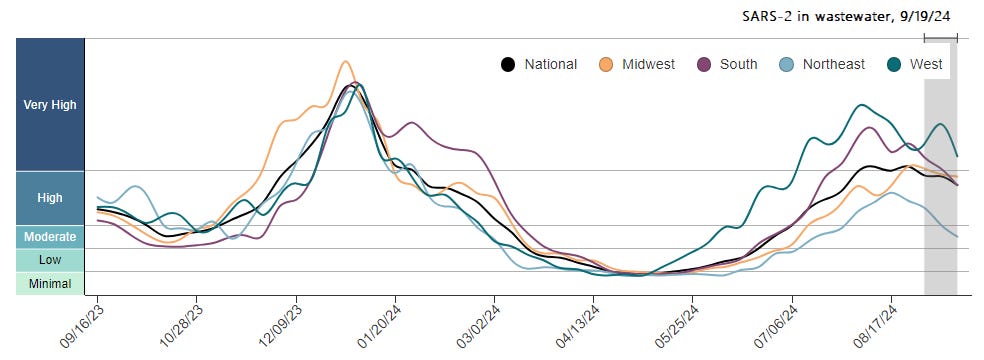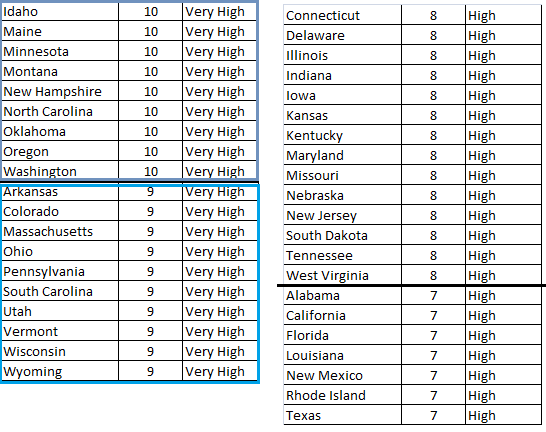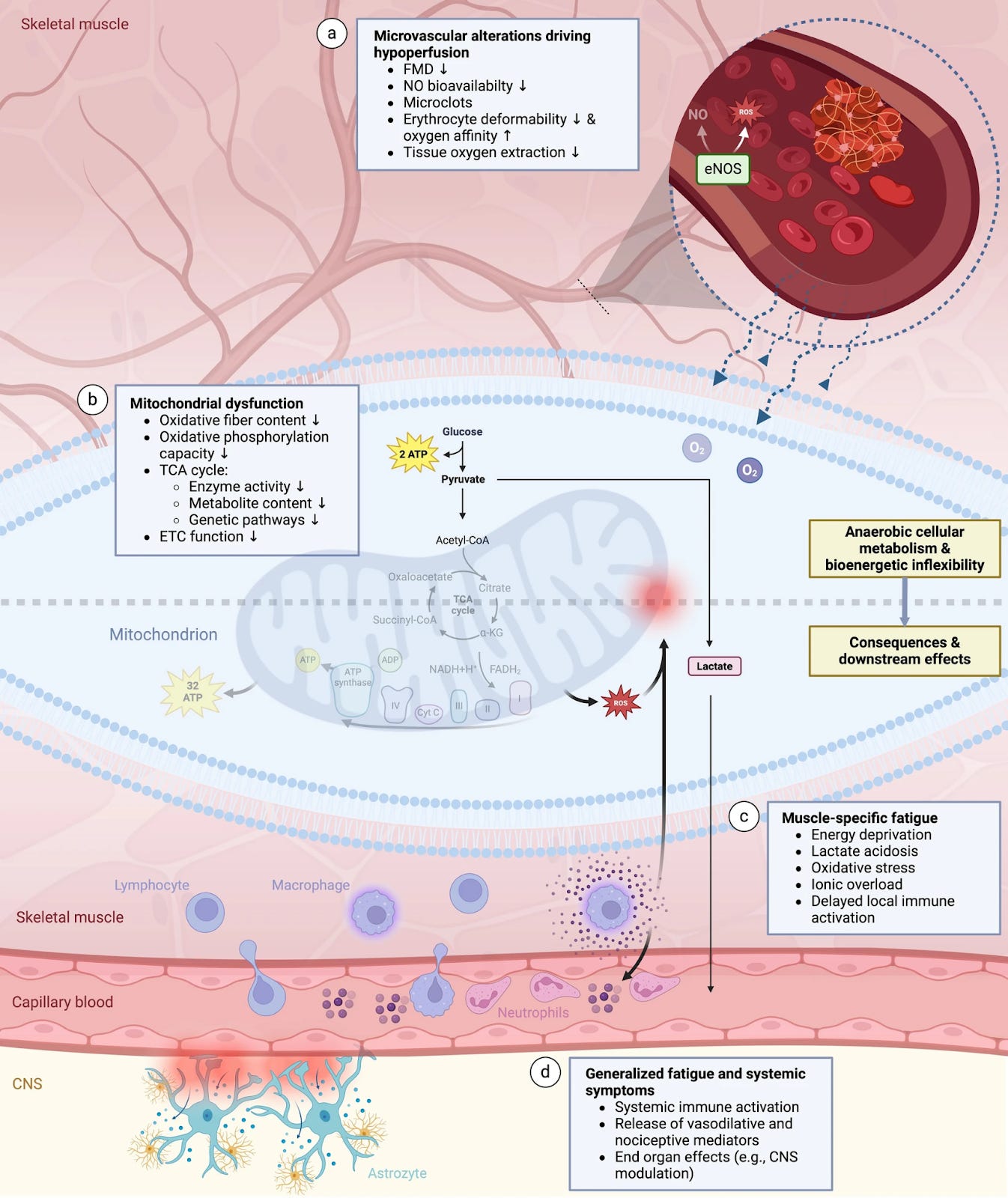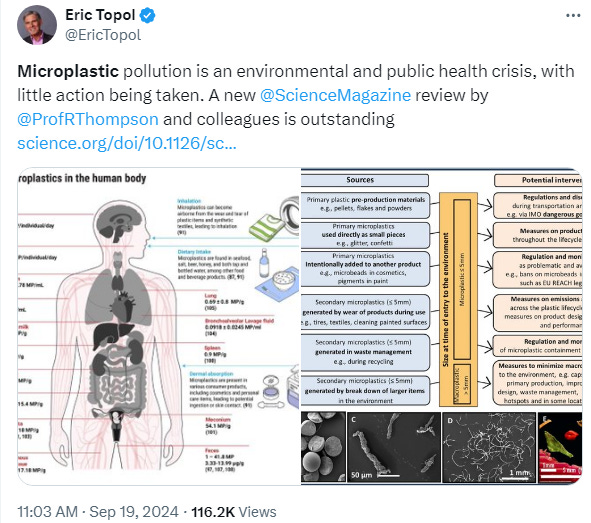------------------------------------
COVID news & more, 9/21/24
COVID wastewater levels have peaked and appear to be going down in most states, but wastewater virus levels are still at very high or high levels in most states. There are about 716,000 to 1,000,000 new COVID cases daily in America now and about 1 in every 40 to 47 people is currently infected. Mike Hoerger predicts a “lull” in cases in early November.
Wastewater SARS-CoV-2 levels, as of 9/14/24:
(https://www.cdc.gov/nwss/rv/COVID19-currentlevels.html)

CDC wastewater SARS-CoV-2 as of 9/19/24: https://www.cdc.gov/nwss/rv/COVID19-nationaltrend.html
Emergency Department visits for COVID continue to decrease, but weekly COVID deaths in the U.S. have been over 1,000 per week for the last 5 weeks.
KP.3.1.1 remains the most common variant and was 52.7% of cases as of 9/14/24. The updated COVID vaccines match this variant well.
Variants
XEC is a recombinant variant of KS.1.1 and KP.3.3 that is being watched closely. There has been a lot of discussion about XEC on Twitter as it has shown a significant growth advantage, outpacing KP.3.1.1 in some countries, yet XEC has very similar spike protein mutations to KP.3.1.1 which has puzzled scientists. Ryan Hisner may have found why XEC has a growth advantage- it could be due to a mutation in the Nucleocapsid (N) protein.
Acute COVID infections, General COVID info
Regarding herd immunity, Dr. Fauci said in a recent interview that it is not possible to have long lasting or herd immunity to SARS-CoV-2 because the virus continues to evolve and change. As Dr. Ziyad Al-Aly commented, “This is very important for people to understand. Immunity against SARS-CoV-2 - wanes/declines/disappears with time (months). This applies to immunity from natural infection and vaccine-derived immunity.”
A new article in the Journal of Virology shows that even mild COVID infections can cause leaky gut, allowing bacteria to go from inside of the gut, across the leaky colonocytes, and into the bloodstream. The study showed a "significant increase in plasma soluble CD14 (sCD14) that may be induced by LPS [from the translocated bacteria]... sCD14 significantly positively correlated with zonulin, an indicator of gut barrier integrity, and IL-6. These results demonstrate that GI perturbations such as microbial translocation can occur in even mild SARS-CoV-2 infections and may contribute to the COVID-19 inflammatory state."
Dr. Vipin Vashishtha also wrote an interesting tweet thread last week on COVID, the Gut-Lung Axis, immunity and the intestinal microbiome, and on probiotics for Long COVID.
Lucky Tran posted a new poll from Ipsos showing that half of Americans believe that they will never get COVID again. Typically, there have been at least 2 large COVID waves each year since 2020.
A new poll posted by the CDC shows that 95% of people said that they would take more precautions if they knew virus levels in wastewater were high. Of those people, 76% would wash their hands more, 61% would avoid large gatherings, 59% would avoid people at high risk of COVID infection, 57% would tell their family or friends about high levels in wastewater, 52% would get vaccinated, 51% said they would wear a mask in indoor spaces.
Pediatrics
Chronic stress or adversity during development can result in accelerated brain maturation. Accelerated brain aging, seen as thinning of the cerebral cortex on MRI, is associated with an increased risk for the development of neuropsychiatric and behavioral disorders. Teenage girls were found to have the equivalent of 4.2 years in brain aging acceleration while teen boys had about 1.4 years of increased brain aging during pandemic lock downs. However, correlation is not causation and more studies are needed to see if this was due to lockdowns or to something else. It will also be important to study if teens’ brains recover later.
Clean Air in BC Schools put out a free, printable “zine” on how to keep air clean in schools. The pocket guide discusses ventilation, air filtration, measuring CO2 levels and wearing face masks.
Antiviral medications
The SELECT trial studied semaglutide 2.4 mg in people with cardiovascular disease and obesity but no diabetes. It found that those who took semaglutide had lower rates of all-cause death, cardiovascular (CV) death, and non-CV death compared to those who took a placebo. The reduction in non-CV deaths was mainly due to fewer deaths from infections, including COVID-19. Overall, the study suggests semaglutide reduces mortality risk in patients with obesity and cardiovascular disease, especially during the COVID-19 pandemic.
Hyundai Bioscience is partnering with the University of California San Diego (UCSD) to conduct a trial evaluating Xafty, a niclosamide-based oral antiviral, to treat Long COVID. Previous clinical trials have shown Xafty is safe and it improves acute COVID symptoms, especially in high-risk groups. Xafty was also found to have neuroprotective effects in preclinical animal studies on Parkinson’s disease. Led by Dr. Ajay Bharti, the new clinical trial will explore how Xafty may address Long COVID symptoms through virus suppression, inflammation reduction, and neuroprotection.
Because viral persistence may be a cause of Long COVID, scientists are studying the use of antiviral medications to treat or prevent Long COVID. A new report from Victoria Harris and colleagues from the PANORAMIC trial showed that people who took molnupiravir during acute COVID infection had better outcomes at 3 months and 6 months. However, Molnupiravir is not an ideal treatment because it is mutagenic. It is important to find new antiviral medications that work against SARS-CoV-2 with less secondary effects. "The key for successful treatment trials will probably hinge (among other things) on targeting the disease early; whether earlier initiation of antiviral therapy, longer duration of treatment, or a combination of different antivirals (with different mechanisms of action) yields better effectiveness," wrote Dr. Ziyad Al-Aly.
Metformin is a cheap, safe drug that has been shown to decrease the risk of Long COVID by 41% in non-diabetic patients who were overweight in a 2023 study. A new retrospective cohort study using electronic medical records shows that diabetic patients on Metformin had a 13 to 15% lower risk of death and a 21% lower risk of Long COVID as compared to people on different medications for diabetes. The results suggest that metformin could lead to better outcomes for people with type 2 diabetes who contract COVID.
Long COVID
An article came out this week in The Sick Times discussing how people with severe Long COVID cannot access health care because they are too sick to leave their beds. There needs to be a better system for evaluating and treating people with severe Long COVID and it is important to include them in clinical trials and studies as well.
The Sick Times also introduced a new resource called Long COVID Essentials that covers many topics including “What to do if you or someone else in your household has COVID” and what symptoms can occur after COVID infections.
Dr. Claire Taylor tweeted this week about a new study presented at the European Respiratory Society (ERS) 2024 International Congress in Vienna showing that some people with Long COVID symptoms of breathlessness and fatigue can have normal CT pulmonary angiogram scans, but have abnormal VQ scans showing abnormal lung blood supply. Researchers at Imperial College London studied 41 people who had mild COVID infections, but continued to experience symptoms like breathlessness and fatigue, even though their CT scans were normal. The study found these patients had abnormal lung perfusion and reduced gas diffusion capacity. Dr. Laura Price, a respiratory physician at Royal Brompton Hospital, said that this appears to be due to pulmonary microangiopathy affecting small blood vessels in the lungs that leads to shortness of breath. We know from other studies that SARS-CoV-2 can damage endothelial cells that line blood vessels. Dr. Taylor stresses the importance of using VQ scans to see perfusion issues.
A new paper looks at the complex mechanisms including microvascular alterations and immunometabolic interactions behind post-exertional malaise (PEM), a symptom common in both Long COVID and myalgic encephalomyelitis/chronic fatigue syndrome (ME/CFS). Physical exercise in people with Long COVID and/or ME/CFS can cause reduced oxygen extraction, mitochondrial dysfunction, and immune system activation, which can lead to fatigue, pain, and worsened post-exertional malaise symptoms. The review discusses how these conditions may share a common pathology and the challenges in finding effective treatments for PEM.
From: https://link.springer.com/article/10.1007/s15010-024-02386-8
Regarding post-exertional malaise (PEM), several people with Long COVID highly recommend a recent explanatory video on PEM from Dr. Brayden Yellman of the Bateman Horne Center and ME Action.
H5N1
Last week, the CDC disclosed that a household contact of the person hospitalized in Missouri with H5N1 bird flu and a health care worker who took care of that individual when they were hospitalized both had been ill. The first health care worker tested negative for influenza. Now, a second health care worker who took care of that person also reported a mild respiratory infection that had resolved. Antibody testing for H5N1 is pending for the second healthcare worker. Per the CDC, “the risk to the public remains low”, but the case is being followed closely to make sure that there was no human-to-human transmission of H5N1.
Other news:
Eric Topol tweeted about two new studies on plastic pollution and human health:
9/19/24 Science: Twenty years of microplastics pollution research—what have we learned? https://www.science.org/doi/10.1126/science.adl2746
9/16/24 WSJ: Scientists just figured out how many chemicals enter our bodies from food packaging https://buff.ly/3TG60jg or https://archive.is/hUV8F

Migraines: A new review and meta-analysis of 137 double blind randomized clinical trials found that triptan drugs (eletriptan, rizatriptan, sumatriptan, and zolmitriptan) are more effective against acute migraine headaches than newly marketed drugs lasmiditan, rimegepant, and ubrogepant.
ADHD meds: High doses of some prescription stimulant drugs for ADHD, like Adderall, have a more than five-fold increased risk for developing psychosis or mania.
Bletchley Park Reunion https://x.com/bletchleypark/status/1833110877672771588
This week, a humpback whale realized that it had mistakenly caught a seal in its mouth, and it quickly spit the little guy out. Whale watchers were able to photograph the event.
Photo credit: Blue Kingdom Whale and Wildlife Tours
Have a good rest of your weekend,
Ruth Ann Crystal MD



















.jpg)
No comments:
Post a Comment